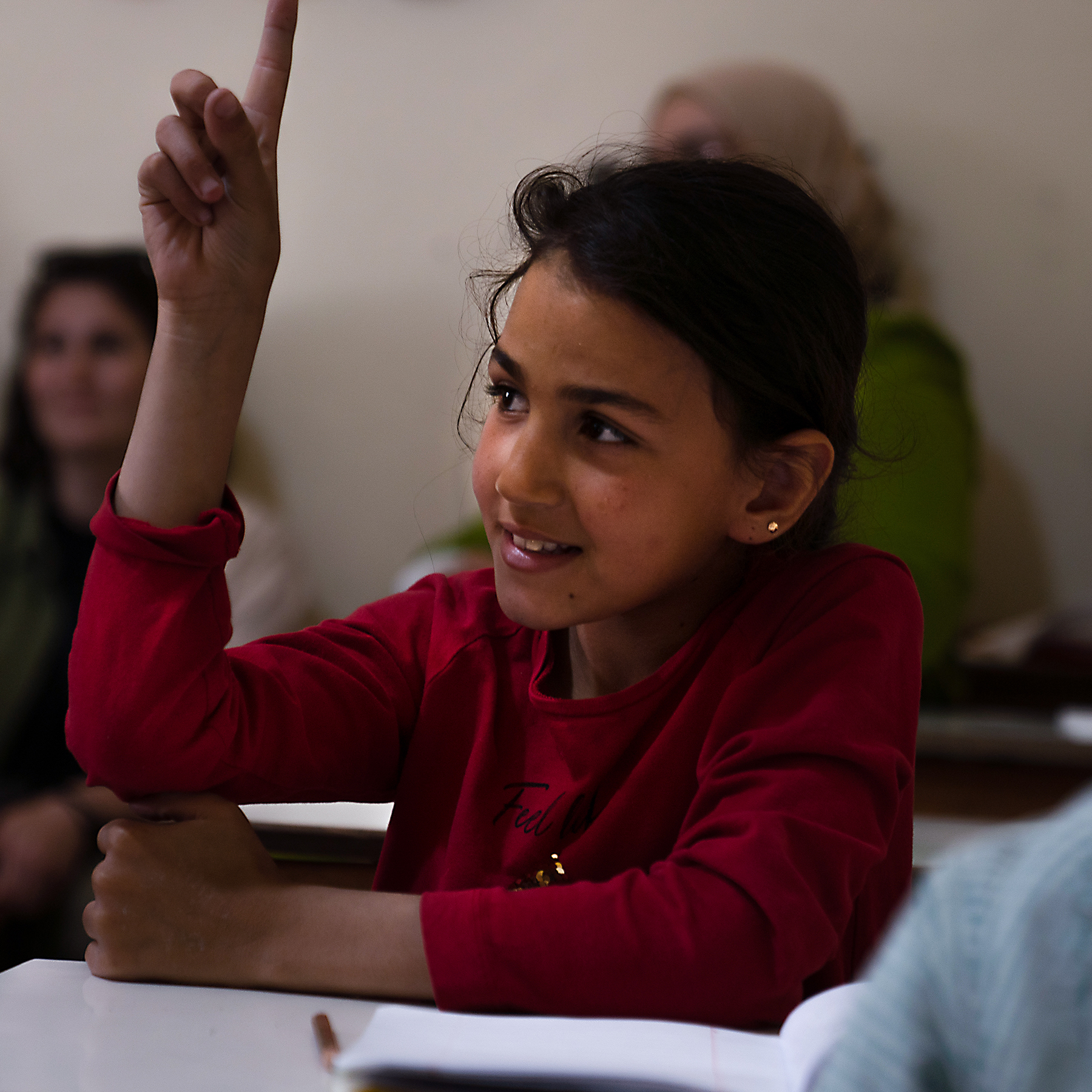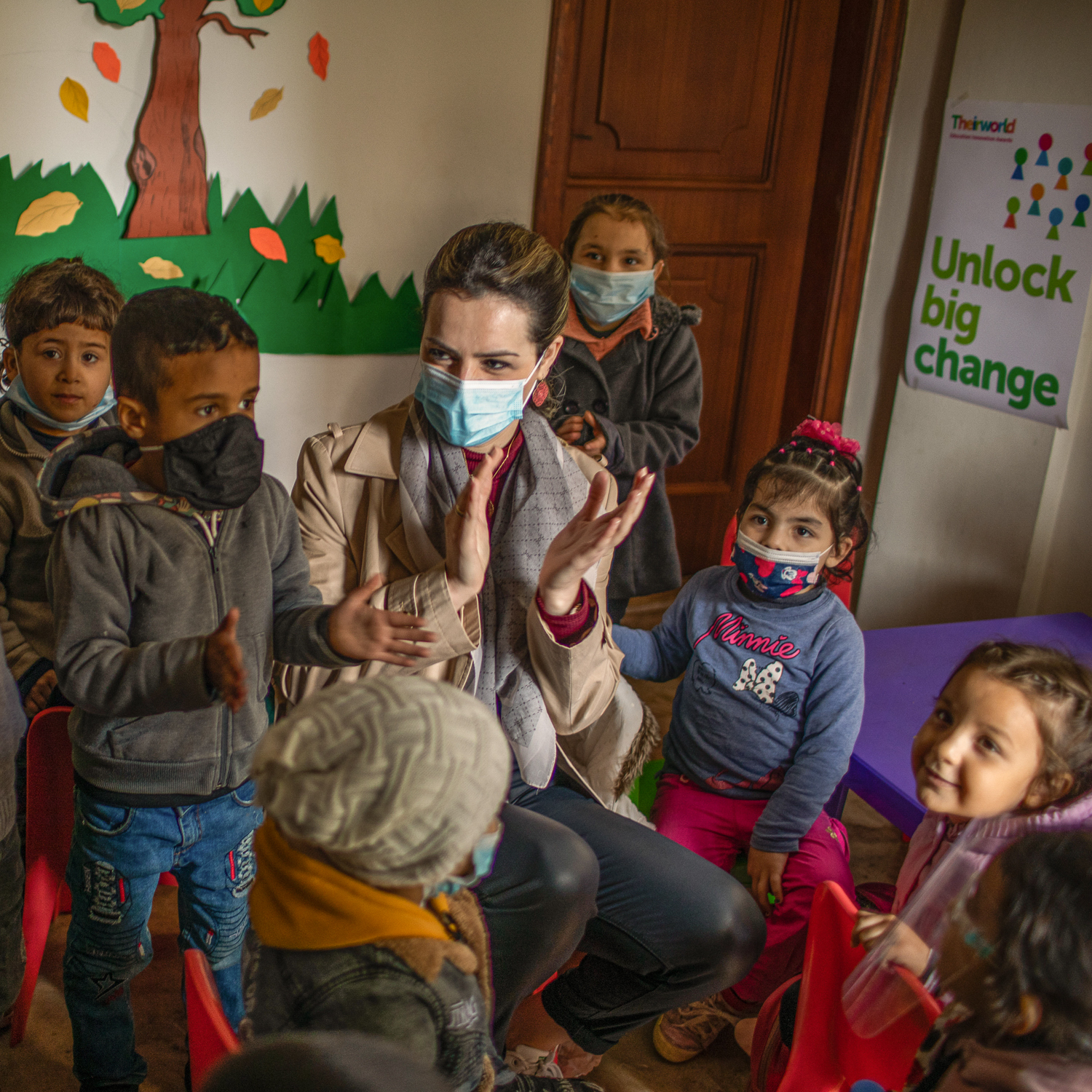300,000+
displaced children have been helped into education thanks to Theirworld’s campaigning
The proposal would require public schools to adapt their existing operations to be able to accommodate the double-shift structure. Theirworld campaigned for donor countries to help fund the plan, eventually raising millions of dollars.
The solution was backed by UN agencies and taken forward by the Lebanese Ministry of Education. Today it forms a central pillar of the Lebanese government’s Reaching All Children with Education (RACE) national strategy.
It means Theirworld’s campaigning has contributed to more than 300,000 displaced children receiving an education in Lebanon. Today we continue to help by providing support for the delivery of refugee education in collaboration with the Ministry of Education and Higher Education and local partners.
The impact of double-shift schools went far beyond the project itself, though; it acted as a springboard for a campaign for a dedicated fund aimed at helping children who find themselves in emergency situations to get access to education.
Theirworld was central to the campaign, and the need was clear: despite the biggest refugee crisis since World War II, funding for education in the poorest and most volatile settings was actually decreasing. In 2015 less than 2% of humanitarian aid relief went to education.



